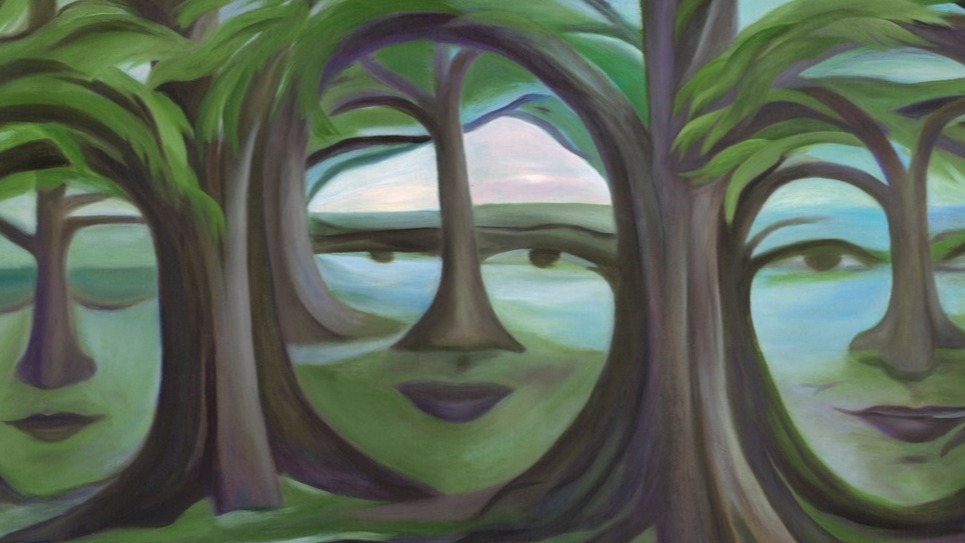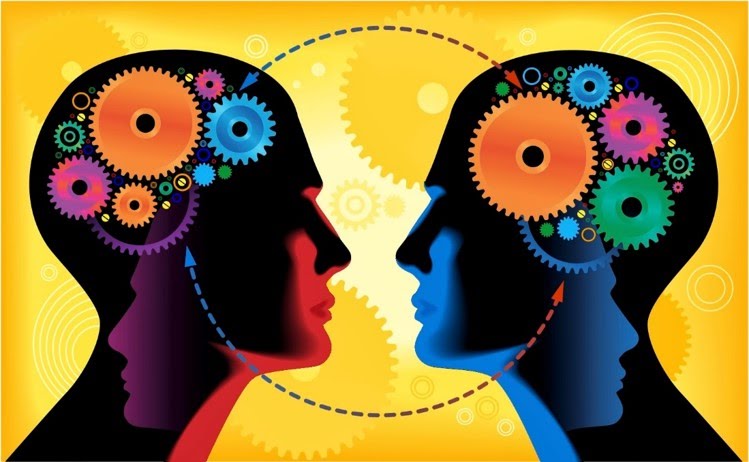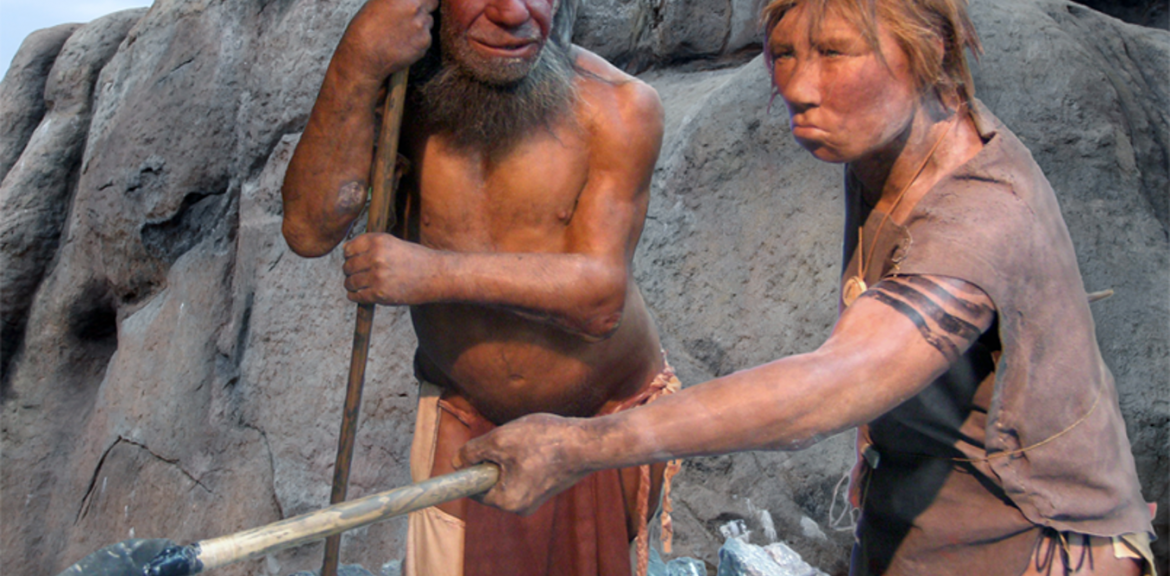Did you know that Neanderthals actually had bigger brains than we Homo saps? They clearly did not possess symbolic thought however, just “purely intuitive insight” as paleoanthropologists ambiguously put it.
More to the point, “The Neanderthals did not live, as we do, in a world of their own making, reconstructed in their minds, but in the world as nature presented it to them.”
No sentence ripples with greater implications for this, the sum of all dark ages. Cue the QAnon crazies.
I don’t mean to focus on QAnon people as exceptions to the rule, but as extreme examples of the rule. So what is the rule?
As humans, we live in worlds of our own making, reconstructed in our minds. Reification served our species well as long as myth, ritual and tradition reminded us that we’re actually part of nature, not separate from it.

But once the Agricultural and Industrial, much less Digital Revolutions took hold, our self-made realities became increasingly divorced from the actualities of nature that we’re embedded within.
Thus QAnon crazies aren’t exceptions to the rule of human rationality, but the logical end of human irrationality.
The tendency to believe what we want to believe, irrespective of evidence, has been a feature of human nature since time immemorial. Until our age however, there was a check, internally and/or externally imposed, on how far we could depart from the truth.
The universe experiments, and so should we, not just scientifically. Apparently, the experiment in consciousness that was the Neanderthals dead-ended about 40,000 years ago in Gibraltar, the last holdout of their species. Will the experiment in consciousness that is Homo sapiens also dead end, despite our numbers, and our science and technology?
Many people now believe so, and many even misanthropically hope so. Others take false refuge in the knowledge that at every juncture of history that we know of, people have felt that time was running out, and theirs were the ‘end times.’
Now that it may truly be so, gauging from the man-made, planetary ecological crisis, people are taking false refuge in the fact that many generations before us have been wrong. The irony is that it appears that this is the first time people have done that — taken comfort in people having been wrong before!
Scientists and most philosophers tend to dismiss teleology – the idea that there may be an intrinsic direction, however much randomness in evolution — out of hand. But that’s closed-minded, given the irrefutable evidence of the “fine tuning” of the universe for life (discounting the dodgy idea of the multiverse), and the emergence of consciousness.
So if Neanderthals were a dead-end in nature’s experiment in consciousness on Earth, and Homo sapiens threatens to be another dead-end, will other potentially intelligent species after us make the grade?
Unlikely. On this planet at least, the experiment in consciousness probably ends, or breaks through with us. So what is the next step/leap in consciousness, and can we consciously, non-scientifically/technologically bring it about?
People unknowingly brought about the Cognitive Revolution about 100,000 years ago, allowing “fully modern humans” to emerge. So is the human brain now ready for full consciousness to emerge?

With respect to the Cognitive Revolution, a mutation apparently occurred and spread very quickly in all Homo sapiens populations, from Africa to Europe and Asia, within a matter of generations. With respect to the Insight Revolution, given the complete interconnectedness of human populations, and the meaninglessness of racial differences, it could happen much faster.
Igniting insight within oneself, not as a separate dividual but as true in-dividual, is therefore the urgent responsibility of every living human being with the capacity, space and time to do so.
What exactly constitutes the transition from humans to human beings?
Difficult as it is to actually bring about within oneself, I feel it’s contained in this question: Can the brain be anchored in attention and silence without a center, rather than symbol and memory in self-centeredness, as it has been for tens of thousands of years?
Surely that’s the next step/leap in human evolution and consciousness, if we take it. And contrary to what many Buddhists believe, we don’t have an unlimited number of chances to change course, as individuals or a species.
All told, we can’t know if this is our last chance to change course, but we damn well better treat it as if it is.
Martin LeFevre

